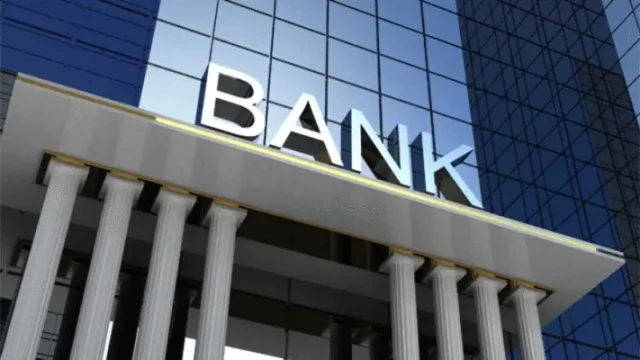“Brick and mortar” means a business has physical locations that customers can visit to conduct business. The term refers to the actual bricks and mortar that were historically used to build the branch locations, although in more contemporary contexts steel and drywall might be more readily apparent.
In the world of banking, brick and mortar banks are banks and credit unions with branches. Many of them also offer online banking services, but the online services are optional. That is comparable to businesses that have both physical storefronts where you can shop in person and online stores where you can buy the same products.
The opposite of a brick and mortar bank is an online-only “internet bank.”. Visits to branches are not possible. You are unable to interact with a teller for deposits or withdrawals, nor can you meet with a loan officer to talk about your borrowing requirements. There are, of course, remote offices where bank employees work and answer phone calls from customers, but customers don’t visit those locations.
Brick and mortar history
Only in the age of the internet is the phrase “brick and mortar” still relevant. For instance, all banks were brick and mortar in the 1980s, so there was no need to mention a brick and mortar bank. Brick and mortar businesses are sometimes considered “traditional” when compared to online-only counterparts.
The phrase gained popularity once companies began operating entirely online, without a physical location for customers to visit.
Note
Although online banking as we know it today did not exist in 1975, according to Merriam-Webster, the term was first used in that year.
Both benefits and drawbacks
Having physical locations may or may not be a good thing. Banks and credit unions with physical locations are probably your preference if you prefer doing business in person. You can interact with a bank employee, see everything in front of you, and possibly communicate more clearly. Plus, brick and mortar banks are best for depositing cash because sending cash through the mail is unsafe, and depositing at an ATM can be cumbersome.
However, physical locations cost money, and those costs are typically passed on to customers in the form of higher rates on loans and lower rates on savings accounts and certificates of deposits (CDs). Instead of staffing a single call center that could serve the entire country, brick and mortar banks need to hire more people to staff each branch. Banks also have to pay for construction or leased retail space.
Online Advantage
Online-only banks claim that they offer better deals because they don’t have to pay all of the overhead associated with brick and mortar locations. Online banks typically pay the highest interest rates on savings accounts and are likely to provide free checking, so there is probably some truth to that.
There are many tasks that can be completed using mobile apps that you could also complete in a branch. You can deposit checks by taking a photo of the check, and you can pay bills easily online. When problems or questions arise, online banks offer customer service by phone, secure messaging, or instant chat.
Physical Branch Advantage
At the same time, physical branches still offer valuable services that you can’t get from an online-only bank. In addition to offering safe deposit boxes and cashier’s checks, branches also notarize documents. You can get those services from a variety of other places (usually), but it might be easier to do everything at the bank. Plus, you get important documents instantly—instead of needing to order a check online and wait for it to arrive by mail.
You still need a bank or credit union account, even in the era of online banking. Though it’s possible to only bank online, online banks typically connect to your physical account. It is a good idea to open an account with a local institution so that you can handle important transactions in person. You never know when you might need additional services (during important life events). The question is how much of your banking will you actually do through that bank.
How to Begin Online Banking
We’ve highlighted some of the top options for consumers nationwide if online banking sounds appealing.
Top Online Checking Accounts.
Banks with the best savings accounts.
Note
Banks and credit unions in your community might offer you some great options, and you might find it rewarding to patronize neighborhood businesses. The pages mentioned above, however, can assist you in getting started online right away if you need any additional ideas.

